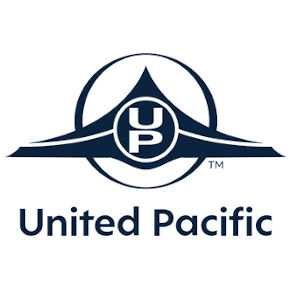Since the inception of the trucking industry, and probably even before then, everything was run through a traditional freight broker. Without these brokers there would have been no connections (or at least very little) between the shippers and the carriers. Obviously, this meant there would be no industry, and possibly, no economy - we all know the economy revolves around us making our deliveries.
There were, of course, pros and cons to this system. The pros being, you had a larger pool of clients to pull from and the cons being, you had to pay these brokers a fee for using that pool of clientele. There were/are other benefits of a brokerage as well of course, but I tend to think the ability to scale your business is the greatest one you receive from brokers.
Today, those books are in trouble, with large companies nipping at their heels trying to take their clients away.
What is causing it?
We have all seen the direction that the transportation industry has taken recently, specifically personal transportation services. The way of the taxi is slowly but surely (and maybe not even that slowly) coming to an end, with passengers instead opting to go with rideshare companies like Lyft and Uber. Hell, even I use Lyft every so often.
The advent of these rideshare companies, and the success that they have enjoyed over their young lifespans has begun to make its way into other fields threatening to take over other industries as well - Hotels and even air travel being among those industries.
The truth is, our connected world seems to be changing the way we conduct business in its entirety. Threatening the old way, we do business, and pushing the logistics and transportation industry into a new world. One, where giant companies no longer have a stranglehold on the little guys, and our ability to turn a profit. Maybe?
How is this going to be done?
The formula is simple really. You get a coding genius that finds a way to make a platform that puts two parties in the same industry that need the other services. They allow both parties to vie for each other's business, and then they take a percentage off the top.
All that is needed here is the platform, an internet connection, an internet connected device, and then finally enough traffic on the platform to make it profitable.
This can be great for everyone too. The issues only come into play when that platform begins to get stingy and take too high of a percentage of their “brokerage fees.” And that is something that the tech giants are prone to doing.
Rideshare companies
Sure, it seems like the advent of companies like Uber and Lyft, even other companies like Airbnb, have been great for the economy. And especially great for drivers who might otherwise have no other way to earn an income.
What we’ve found out though, is that while it allows those looking for a ride somewhere save a lot of that sweet moolah, it is squeezing out the taxi industries, and the drivers make nowhere near enough to live off.
Of course, the companies that own the platform that connect drivers and riders make ridiculous sums of money.
But that doesn’t necessarily spell disaster for the trucking industry.
Benefits of this new-found technology
Having a platform that can bridge the gap between shippers and carriers has the potential to change the industry upside down, this could (emphasis on the word could) be great for drivers and companies that employ those drivers (again, this is all dependent upon the platform not overcharging for using it).
Some of the benefits are
- You will have larger visibility over the supply chain: both suppliers and shippers alike will be able to see anybody that is on the platform and vie for their business.
- Potentially more money in the hands of the deliverers: To stay competitive and squeeze out the traditional brokers, these new companies are going to have to offer better rates. And the saving has to be substantial enough that companies are willing to sever ties or reduce the amount of business they do with their current brokers.
- Less administrative work: these platforms do everything automatically, so there will be no need to have large contracts requiring tons of paperwork. Instead, it is all done on the platform.
- Efficiency: how many times have you taken a load to California and had to drive back with nothing on the back of your truck? With these platforms, you’ll have more access to shippers making it more likely you’ll find someone needing a load taken back the way you are going.
- Freelance trucking: if you already own a truck but are no longer attached to a company, or maybe you just want to branch off on your own. These platforms will be a godsend for you.
What companies are out there?
Similar to the platforms offering personal transportation to consumers, there are several different options out there to choose from. Of course, Uber has their trucking platform (I suggest we do not use them), but there are many platforms to choose from. And it may be a good idea to branch out and use a multitude of these platforms.
The first, and maybe most trusted of the platform is Overhaul, a company founded by people who have decades of experience in the trucking industry. But you’ve also got other companies like; Cargomatic, Transfix, Convoy and still a bunch more.
Wrap - Up
As time goes on new technology comes in, forever changing the game, and old business models become antiquated. We saw it back in the day with Blockbuster shutting its doors, and we just saw it recently with ToysRus doing the same. If companies do not change with the times, they get left behind. And it is looking like the traditional brokers are in that boat.
For the most part, we all have pretty good relationships with our brokers (that is why we still do business with them) and would hate to see them lose business. But in business, our number one priority is to make a profit, ethically of course.
We may be reaching the end of days for traditional brokers









